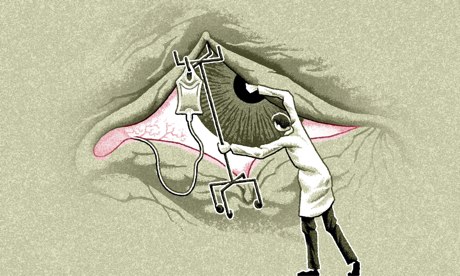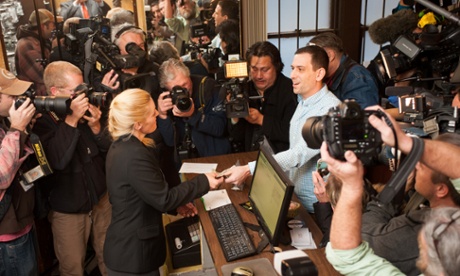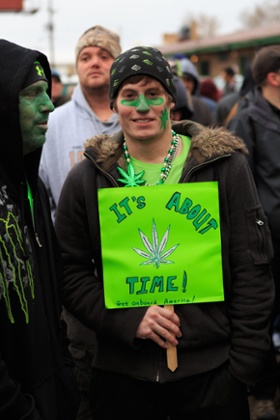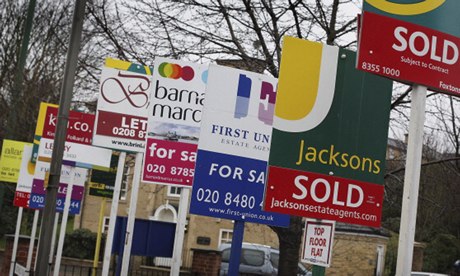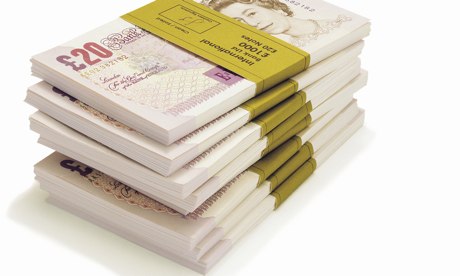Private landlords threaten eviction as they pocket half of their tenants' wages, but politicians do nothing
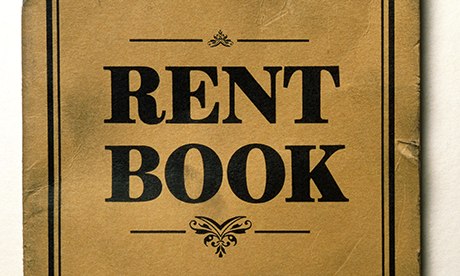
More than four million people now rent privately and a million more will join them in the next few years. Photograph: Alamy
Will the rise in rents turn into one of the major issues of 2014? Young adults and families are being painfully stretched by private landlords, who are now often pocketing half or more of their tenants' wages with threats of eviction if they don't cough up another inflation-busting rent rise in the year ahead. A report we published in December headlined "Rents rise twice as much as earnings" was greeted with rage by tenants. "My landlady spends the money she gets from my rent on herself and not on the house I live in, it hasn't had any work done on it apart from a very badly fitting new front door in the last five years. But what does she care? She doesn't have to live in the cold, damp, draughty place, as long as her standard of living doesn't suffer," commented one.
"A lovely affordable two-bedroom house recently went up for sale in my area where affordable housing is very rare," said another. "It sold very quickly and I was hoping to see a nice young couple/person move in, but lo and behold it was snatched up by a landlord who already owns six properties in our street. Another affordable house now off the market and into the grubby hands of a rich landlord. I still hope a lovely young couple/person does move in, but unfortunately they'll have to pay more than what a mortgage costs and they won't own one brick. What a lovely country we live in. We are going back to Dickens's time."
Every time we publish a story on rents we see a similar response, and it's getting worse. Yet this rage is being met with almost total silence from the political and economic establishment. How many MPs have rented their family home all their lives from a private landlord? I'd wager almost none.
How many heads of our banks and building societies would prefer to live under a six-month assured shorthold tenancy rather than own (and control) their home? None. I've sat on panels at conferences examining the private rented sector. I ask how many people in the room rent their main residence. Rarely do I see a hand go up. There is now a vast gulf between the experience of policymakers, many of them baby boomers who have benefited from property price rises, and what is happening to the generation following behind.
Politicians have ignored the issue for so long because it isn't seen as national. Many still think of it as a London thing, with "entitled" young professionals carping on about the rent on a luxury two-bed pad in Clapham. That simply exposes their disconnect from reality. Over the past decade there has been a 127% increase in families with children in the private rented sector. There are now 4.3 million people renting privately, and a million more will join them in the next few years. The fastest-growing group of private tenants are not students leaving university, but people between 35 and 44, often with children.
Today's Money pages examine the experience of individuals across major world cities. New York and Sydney appear to match, or even outdo, London. Yet again, Germany offers a model that appears to work much better than the rapacious Anglo-Saxon approach. Rent control is not the dirty word in Munich or Berlin that it is in Whitehall.
Tories, who tend to receive rather than pay rent, go apoplectic at the merest suggestion of rent control, but should heed Ed Miliband's focus on the cost of living crisis. A cap on rent (let's call it "stabilisation") may be no less electorally successful than the proposed cap on energy bills, such is the level of despair so many young people and families are feeling.
A Labour Party policy review proposes a national register of private landlords (partly to at least make them pay tax), measures to improve the atrocious state of much of the privately-let stock, and tougher sanctions on rogue landlords.
They deserve wider attention, although more form-filling by the many decent landlords out there achieves little when councils cower from dealing with the true crooks. See David Lawrenson's blog on this at lettingfocus.com which, while pro-landlord, is more nuanced than most.
What isn't tackled is the underlying issue of supply and demand. We are living in a modern Speenhamland system where, as I've written before, employers pay below-subsistence wages, subsidised by tax credits, which mean workers can never afford to buy. Meanwhile high rents to landlords are subsidised by housing benefit.
The government promises £100bn for new infrastructure, but on housing it is only planning £3.5bn over the next four years. That's just a tenth of what will be spent on housing benefit over the same period. House building should be Britain's number one infrastructure priority – not just for buyers, but renters too.


